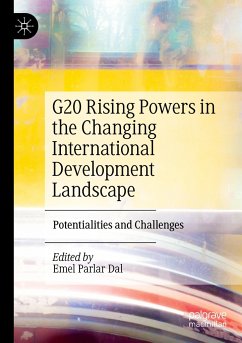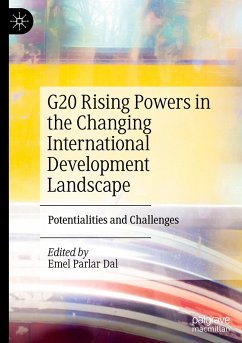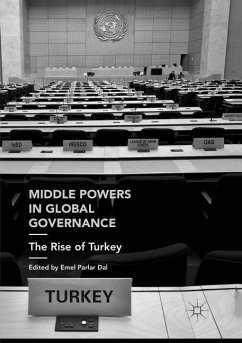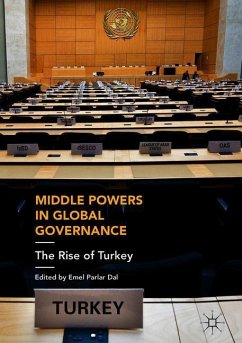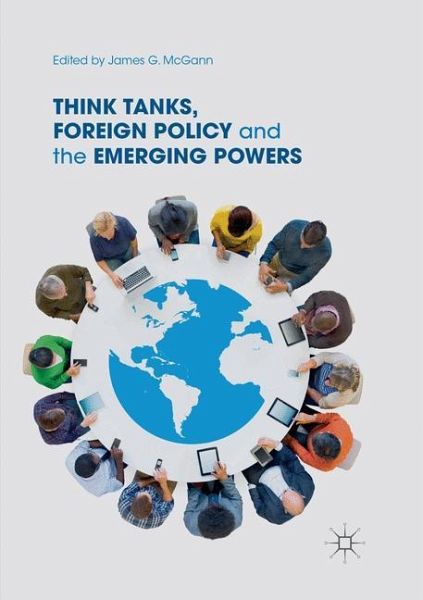
Think Tanks, Foreign Policy and the Emerging Powers
Versandkostenfrei!
Versandfertig in 6-10 Tagen
38,99 €
inkl. MwSt.

PAYBACK Punkte
19 °P sammeln!
This book examines changing international dynamics through the lens of some of the leading think tanks from the emerging powers in the world. Through twelve case studies, the authors explore how security and international affairs think tanks in emerging powers collaborate with their policy makers to meet current and anticipate future foreign policy and security challenges. Overall, the book illustrates and analyzes how think tanks in a variety of political and economic contexts are able to contribute to their respective policy-making processes. Included in the discussions are the problems or s...
This book examines changing international dynamics through the lens of some of the leading think tanks from the emerging powers in the world. Through twelve case studies, the authors explore how security and international affairs think tanks in emerging powers collaborate with their policy makers to meet current and anticipate future foreign policy and security challenges. Overall, the book illustrates and analyzes how think tanks in a variety of political and economic contexts are able to contribute to their respective policy-making processes. Included in the discussions are the problems or successes that each respective nation's think tanks face, where they feel the emerging nation will be positioned, and where they are failing to meet the policy challenges they face. The book provides a comprehensive look at successful foreign policy formulation to serve as examples for other think tanks in similar political and economic conditions.





